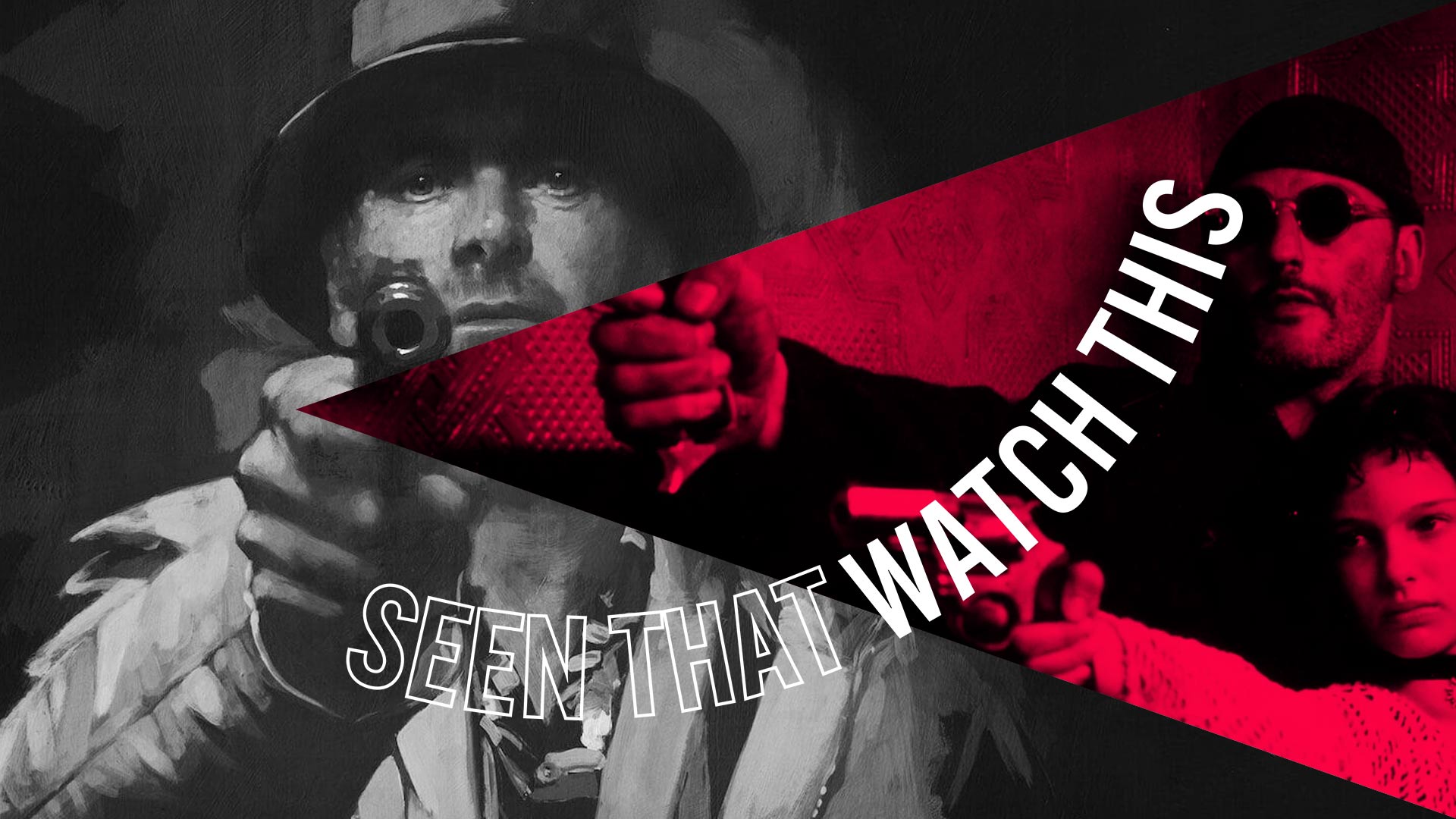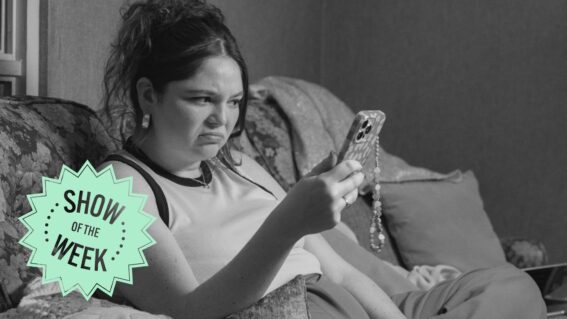After The Killer, check out Luc Besson’s cult classic Léon: The Professional
Both murderous movies have their merits; only time will tell if Fincher’s film becomes as well-remembered as Besson’s.

Seen That? Watch This is a column from critic Luke Buckmaster that takes a new release and matches it to comparable works. This week, he compares two popular movies about assassins: David Fincher’s The Killer and Luc Besson’s cult classic Léon: The Professional.
“If you’re unable to endure boredom, this work is not for you,” says Michael Fassbender’s titular assassin in The Killer, as he stares out a window and observes the wee hours of the morning in Paris. This city, he explains, awakens unlike any other, “without the diesel grind of Berlin” or “the incessant hum of Tokyo.” These introductory moments in David Fincher’s new Netflix film make it clear the (unnamed) protagonist is no mere brute with a rifle: he’s well travelled and cultivated—the kind of guy who likes his wine complex, his steak rare, his music carefully curated.
We soon learn however that he also has little regard for the high/low art divide, quoting Dylan Thomas one moment and Popeye (“I yam what I yam!”) the next. I might’ve liked the guy if he wasn’t, you know, a cold-blooded murderous sociopath.
The movie industry is obsessed with assassins; it seems every month a new production arrives about contracted killers and the occupational hazards of their profession. Which is basically the risk of getting killed yourself. Fincher’s extensive use of narration and its solemn, reflective tone goes some way in distinguishing his film from the rest of the pack; ditto for its stylishly mouldy colour scheme, which seems designed to emulate the look of a painting gone bad. We’ve come to expect this from both Fincher and Fassbender, in the sense that both artists are attracted to characters with filth on them: big sticky stains on their psyche.
In addition to being a pseudo-philosopher, commenting on various ins and outs of the human experience, Fassbender’s killer is keen to proclaim himself as a consummate professional. His voice-over even provides useful information for any aspiring assassins out there, from the vague (“anticipate, don’t improvise”) to the specific (be wary of Airbnbs, because “those super-hosts love their nanny cams”). When he botches an assignment, triggering a violent sequence of comeuppance and counter-comeuppance, we might begin to wonder whether the guy may be over-selling himself.
The day after watching The Killer, which is well staged but leave me feeling a little hollow, I revisited another film that makes a point about its assassin protagonist being a pro. It’s even in the title: Léon: The Professional. Luc Besson’s 1994 cult classic marked Natalie Portman’s acting debut and stars Jean Reno in the iconic titular role as an Italian hitman who finds a moral purpose when he provides a home, and father-like guidance, to a young girl—Portman’s Mathilda—whose family are murdered. These productions are interesting examples of contrasting styles.
The camerawork in Besson’s film is jittery and explorative. It begins in the air, barrelling towards New York, then whooshing through the streets and into a restaurant, straight to a plate of food, triggering several off-kilter close-ups: a cigarette being smoked, Jen Reno’s black circular glasses, the left eye of the man Léon’s talking to. It’s visually erratic from the start, with a pulpy, nervy energy, unsettled and a little wild. Whereas The Killer sticks to you, clinging like a rash, The Professional is more like a dance—pulling you in and pushing you away, showing off its moves.
The characters also starkly contrast. Fassbender’s killer would never look after a young girl (“empathy is weakness,” he says) but Reno is a different kettle of fish, his relationship with Mathilda triggering the old “hitman with a heart” chestnut.
It’s not exactly sugary sweet, with Léon taking her to his place of employ (i.e. a rooftop where he has a sniper rifle) and giving her tips, while at the same time encouraging her not to partake in the trade. This guy is a bit of a dimwit (Fassbender’s on the other hand, as we have noted, is highly educated and culturally au fait). Although it turns out Léon has rules too: namely, when it comes to the people he kills, “no women, no kids.”
It’s hard to say which film is more morally uncomfortable. The Killer is hardboiled and uncompromising: there’s no light in this world, no chance of new beginnings. There is in The Professional, but elements of the drama are iffy to say the least, including its controversial depiction of girlhood, presenting Mathilda as a character who appears to want a sexual relationship with Léon—who rebuffs her, embracing his paternal role. It’s this role that triggers an increasingly important plotline, about a bad man finally attempting to make good.
The differences between the two narratives mirror their visual differences. The Killer’s story, like its camerawork, is controlled, focused, disciplined. The Professional’s is unstable and mercurial. Both have their merits; time will tell if Fincher’s film becomes as well-remembered as Besson’s.




























